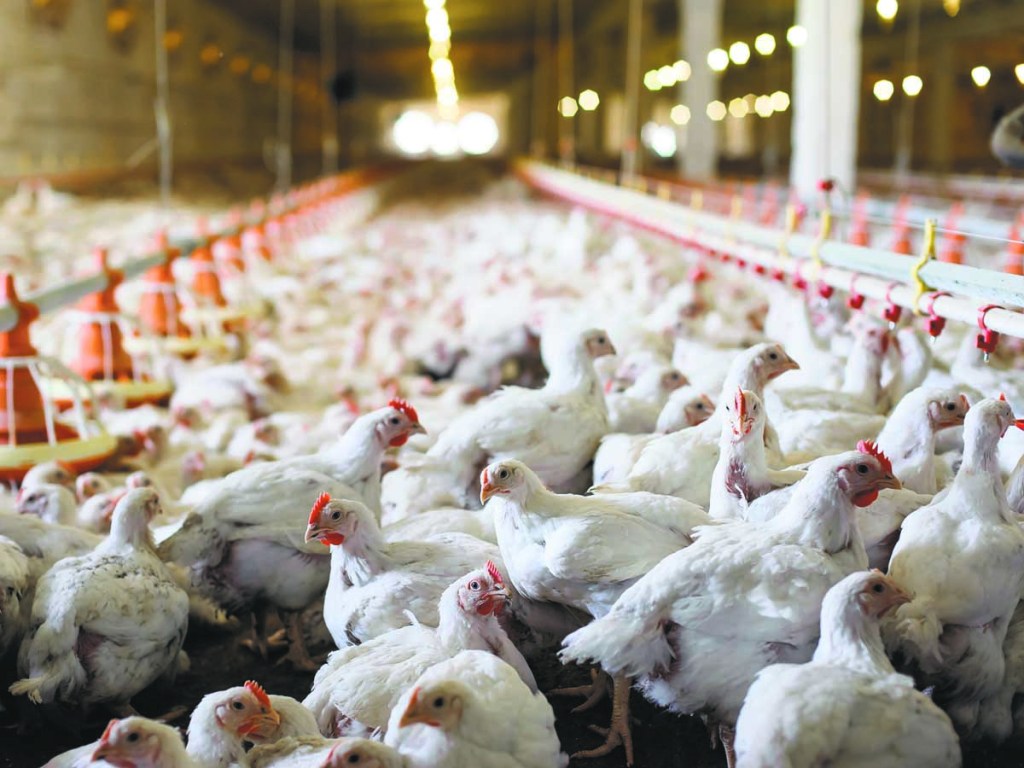Local poultry monitoring avian flu outbreak, unaffected by quarantine
Published 5:15 am Wednesday, March 8, 2017

- CHICKENS
Poultry producers in Cullman County have not been affected by a recent avian influenza quarantine of commercial flocks in southern Tennessee and northern Alabama, according to state officials.
Dr. Tony Frazier, Alabama’s State Veterinarian, told The Times Tuesday that a rapid response from federal and state officials ensured the weekend quarantine remained confined to the smallest possible radius.
“No sick birds made it to processing; to the consumer,” said Frazier. “The poultry is safe; the meat that reaches consumers is safe. In a case like this, that assurance usually tends to de-sensationalize most concerns from a consumer’s point of view, and that definitely applies in this instance — thanks to what was, in my opinion, a very rapid and well-coordinated response.”
On March 3, during routine testing of animals destined for processing, a strain of avian influenza — commonly called the “bird flu” — was confirmed among a breeder flock in Lincoln County, Tennessee. Tennessee and Alabama officials, in coordination with the U.S. Department of Agriculture (USDA), moved quickly to establish a ten-kilometer control radius around the site of the infected flock.
Lincoln County’s proximity to Jackson and Madison Counties in Alabama meant that a small portion of North Alabama was included in that radius. No Cullman County poultry growers or hobby farmers were targeted in the quarantine, and none of the animals was traced to a point of origin in Cullman County.
By Monday, said Frazier, officials were confident that the Lincoln County instance had been fully isolated.
“In this particular incident, the plans that we have had in place for many years have gone very well,” he said. “They found out about these birds on Friday, and by Sunday they were done. Now we are just waiting for additional data from followup testing.
“Because of the nature of this virus in the wild, migratory waterfowl vector — a vector that people cannot control — everyone at every level has to be diligent at all times, and not just whenever we detect a case of avian influenza and implement the response plan,” he added.
“So of course it will not surprise me if there’s another case detected somewhere else. That’s just the nature of the migratory vector that is present at all times. But the response and the cooperation between state, federal and industry has been remarkable in this case, and there has been no threat whatsoever to public safety.”
Dr. Terry Slaten, director of the Hanceville Poultry Diagnostic Lab at Wallace State Community College, said poultry growers work with government at all levels to ensure the integrity of their flocks.
In fact, he explained, it’s in their financial interest to do so.
“Every flock that’s sent for processing; a certain number of those will be tested each time for avian flu,” explained Slaten. “It’s a really vigilant safeguard because of the potential that exists to devastate agriculture on the economic side. If the bird flu is detected and it has actually spread, it tends to create a kind of public sensation that can have a tremendous negative effect not only on farmers, but on everyone involved in bringing the product to market.”
There are many strains of avian influenza, the vast majority of which remain active only in their animal hosts. Mutations can and do occur at times, enabling the virus to behave in unanticipated ways, but the flu generally affects only animals.
Additionally, said Slaten, the supply chain of poultry in agriculture-rich Cullman County ensures that most locally-consumed chicken is also locally grown.
“The chicken you buy at the grocery store typically hasn’t traveled a long way — at least not if you live in Cullman County,” he said. “If you live in some other part of the country; somewhere that’s a long way from the area where poultry is grown, you may be eating chicken that has been raised in some far-off place, but that’s not the case here.”
“Thinking generally about the bird flu virus, it’s a normal inhabitant of the gut systems of wild waterfowl,” added Frazier. “Rarely does it cross species to domestic poultry — and even rarer than that will it cross species to humans. The planets have to line up just right for this virus to establish itself in domestic poultry. That’s happened in this one case, but in no shape, form or fashion does this virus infect humans.”
Like any other meat, preparing poultry comes with some common-sense food safety precautions that apply at all times, Frazier reminded.
“It’s always a good time to remind people that the poultry meat in retail markets is completely safe as long as the consumer cooks it to 160 degrees,” he said. “For those people who enjoy hobby farming and raising ‘backyard birds,’ always be diligent and practice strict biosecurity measures. Report any sick chickens to the state veterinary office, or to the USDA.”
To report suspected cases to the USDA, call 1-800-642-7761. To reach the Alabama Poultry Unit, call 334-240-7255, extension 4.
Benjamin Bullard can be reached by phone at 256-734-2131 ext. 145.


